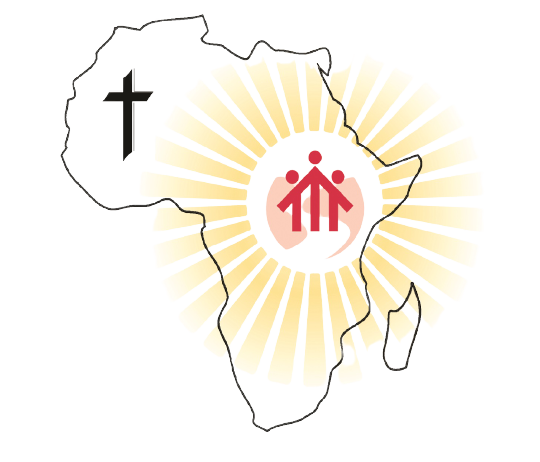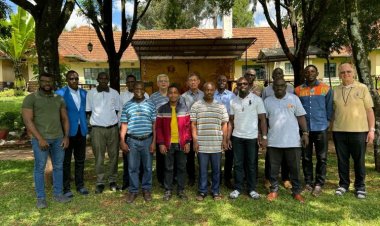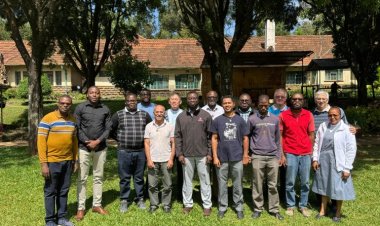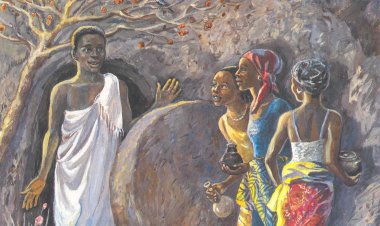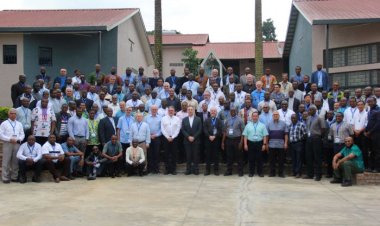« The Oratory »
A Salesian film in tune with Pope Francis
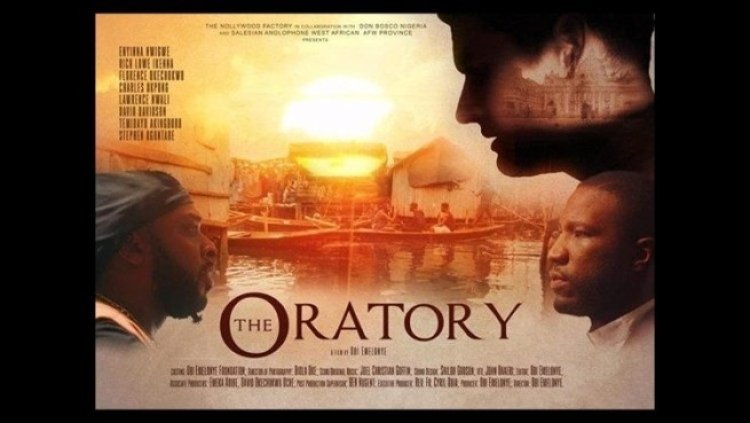
Nigeria – « The Oratory »
A Salesian film in tune with Pope Francis
(ANS - Lagos) - "You will be very much in tune with this film because we are really promoting the cause of Pope Francis." With these words, Don Bosco Salesian Fr. Cyril Odia, Director of the Salesian community in Maynooth, Ireland, introduces the feature film of which he is the creator and executive producer: "The Oratory - St. John Bosco African Story", released in September 2021 and still in the theaters.
Produced and directed by Nigerian director Obi Emelonye, the feature film tells the story of a group of young people in Lagos, the country's main economic and social center. Despite the grim reality marked by degradation and poverty, situations of abandonment, and crime - mirroring the emergencies present throughout the world - the film offers a modern reinterpretation of the figure of Don Bosco and the Salesian charism set in a web of African relationships and landscapes, in which care for the Common Home and legality represent elements of human and Christian salvation.
Plot-wise, "The Oratory" narrates the story of Fr. Michael Simmons - played by actor Rich Lowe Ikenna - an American-born Salesian priest who is sent to the elite parish of Ikoyi in Lagos, which is frequented by groups of affluent believers who frown upon the fact that their parish priest also wants to care for street children. In contrast, Fr. Michael is especially interested in the plight of children in a slum called Makoko, trapped in a criminal network that does not allow them to redeem their existence. He strives to save as many of them as possible, later founding an oratory, entirely inspired by the work of Don Bosco.
The cast brought together professional actors and dozens of children from the Mokoko slum, chosen by Fr. Odia, who firmly believed that the opportunities and positive experiences offered to young people through the making of the film can foster their self-esteem and lead to positive changes in their lives.
To better understand the context in which much of the film is set, it may be helpful to know that the Makoko shantytown itself - also known because many of the shacks are built on stilts on the Lagos lagoon - was at the center of a serious social-political conflict in 2012, when some Nigerian government officials attempted to eliminate the settlement, deeming it "embarrassing for the city's image" after the BBC had reported on it. They initiated a general eviction and set fire to the shantytown, actions that triggered a domino effect of discontent with heavy repercussions on the entire city community. "The choice of this location," said Fr. Odia, "was effective in highlighting the critical environmental conditions, due to pollution and poverty, which further worsen the reality of those living in this precarious environment."
Gbenga Adebija, chairman of the committee that organized the premiere of the film in Lagos, told the Nigerian newspaper "Vanguard News" how "The Oratory" is not just a film, but a documentary that shows a concrete result of the many areas of outreach that the Salesians provide in Nigeria. He emphasized how the feature film calls out individual and collective responsibilities towards street children and how the work of inclusion helps prevent violent and illegal behavior. The film also highlights the values of Laudato Sì: from combating the culture of waste to caring for the Common Home, in a perspective of integral ecology that puts the human person, his or her dignity, and personal and collective well-being back at the center, inviting everyone to redefine the future through careful use of the land’s resources; it also highlights the need to protect work and make it accessible to all, especially the most fragile, renouncing a perspective that privileges only profit.
The contamination of today's stark reality with the history of the past and the reference to Don Bosco is meant to highlight the plight of the needy "and what we should do as a Church," adds Father Odia, who names the encyclical Laudato Sì to reveal how "The Oratory" supports its message: "With this film, we are also promoting the causes of Pope Francis, not only by trying to get children off the streets but also by highlighting that if we do not respond to the urgency of what is happening in the world now, as is well emphasized in the feature film, we are only preparing for disaster."
The positive response from film critics and audiences, even with all the limitations of cinema attendance caused by the pandemic, has inspired the film’s production crew to start a crowdfunding campaign to distribute it on a larger scale.
Currently, screening is possible by prior arrangement with the executive producer, Fr. Odia, who can be contacted by e-mail at: cyrilodia@salesiansireland.ie
Source: Cube Radio, Vatican News
